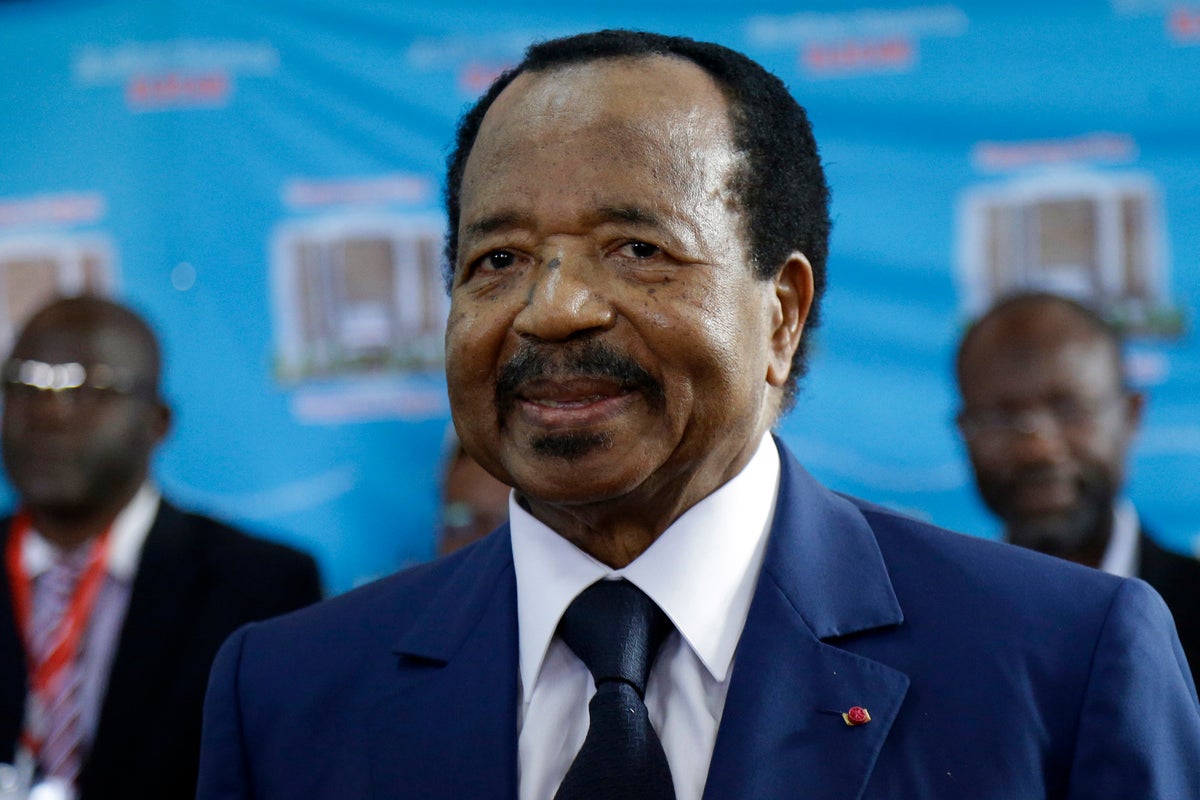World
Cameroon’s President Biya Seeks Eighth Term at Age 92

Cameroon’s President Paul Biya, the world’s oldest head of state, is aiming for re-election in October 2023, a move that could prolong his tenure to an unprecedented 50 years. At 92 years old, should he secure another seven-year term, he would remain in power until nearly reaching a century. His lengthy leadership has drawn both fervent support and significant criticism, making his upcoming candidacy a focal point of national discourse.
Biya first assumed office in 1982 and has not faced defeat in any election since. His time in power has seen Cameroon navigate through a severe economic crisis and transition away from a one-party system. Recently, Biya announced his decision to run again on social media platform X, citing “numerous and insistent” calls for his candidacy from across the nation and its diaspora.
Despite his political longevity, Biya’s administration has faced serious allegations, including corruption, embezzlement, and governance failures. The abolition of term limits in 2008 allowed him to continue his reign, raising concerns about democratic integrity in the country. Additionally, questions regarding his health have surfaced, particularly during a mysterious six-week absence from public view last year, which prompted the government to restrict media discussions about his condition. Interior Minister Paul Atanga Nji deemed such speculation a threat to national security, warning of legal repercussions for offenders.
Biya’s frequent absences from the country have also become a point of contention. Investigations by the Organised Crime and Corruption Reporting Project (OCCRP) revealed he has spent significant portions of his time abroad, missing crucial events such as a devastating train accident in 2016 that resulted in 75 fatalities. His absence during protests against the marginalization of Anglophone communities in Cameroon has also raised alarms, as these demonstrations later escalated into a separatist insurgency.
The upcoming election is particularly relevant as the nation grapples with rising living costs and high unemployment rates. Biya’s confirmation to run again comes amid a fracture within his ruling coalition, especially in the northern regions where support has been pivotal in past elections. Notable figures, including Issa Tchiroma Bakary and former Prime Minister Bello Bouba Maigari, have broken away from the coalition to pursue their candidacies.
Tchiroma has suggested a referendum to decentralize power as part of his platform, addressing the ongoing Anglophone crisis. His statement, “A country cannot exist in the service of one man,” reflects growing discontent among some factions in the country. In contrast, Biya’s supporters and members of the Cameroon People’s Democratic Movement have rallied behind his campaign since last year, reaffirming their commitment to his leadership.
Concerns over human rights violations have also emerged, with various groups criticizing the government’s crackdown on dissent. Parliamentary elections, which were initially scheduled for 2024, have now been postponed until 2026, further complicating the political landscape in Cameroon.
As Biya seeks another term, the implications of his continued leadership extend beyond mere political endurance; they touch on the very fabric of Cameroonian society, governance, and the future of democracy in the nation.
-

 Health3 months ago
Health3 months agoNeurologist Warns Excessive Use of Supplements Can Harm Brain
-

 Health3 months ago
Health3 months agoFiona Phillips’ Husband Shares Heartfelt Update on Her Alzheimer’s Journey
-

 Science1 month ago
Science1 month agoBrian Cox Addresses Claims of Alien Probe in 3I/ATLAS Discovery
-

 Science1 month ago
Science1 month agoNASA Investigates Unusual Comet 3I/ATLAS; New Findings Emerge
-

 Science4 weeks ago
Science4 weeks agoScientists Examine 3I/ATLAS: Alien Artifact or Cosmic Oddity?
-

 Science4 weeks ago
Science4 weeks agoNASA Investigates Speedy Object 3I/ATLAS, Sparking Speculation
-

 Entertainment4 months ago
Entertainment4 months agoKerry Katona Discusses Future Baby Plans and Brian McFadden’s Wedding
-

 Entertainment4 months ago
Entertainment4 months agoEmmerdale Faces Tension as Dylan and April’s Lives Hang in the Balance
-

 World3 months ago
World3 months agoCole Palmer’s Cryptic Message to Kobbie Mainoo Following Loan Talks
-

 Science4 weeks ago
Science4 weeks agoNASA Scientists Explore Origins of 3I/ATLAS, a Fast-Moving Visitor
-

 Entertainment4 months ago
Entertainment4 months agoLove Island Star Toni Laite’s Mother Expresses Disappointment Over Coupling Decision
-

 Entertainment3 months ago
Entertainment3 months agoMajor Cast Changes at Coronation Street: Exits and Returns in 2025









